|
Interview with Mariaelena Jaramillo
By Jessica Rath After talking to quite a number of individuals from Abiquiú and around for the Abiquiú News, one thing stands out for me: the strong sense of community most of these people have. They want to serve and help others, they put time and energy into supporting those around them, more often than not on a purely voluntary basis. Less concerned with their own dreams, they assist those near them to lead fulfilling lives.
Mariaelena Jaramillo is the perfect example. Besides being a mother and working a busy job, she’s involved with several groups which teach fun and useful skills to children and youth. Instructing traditional dances which honor Abiquiú’s forebears. A leader at the Rio Arriba County 4-H Youth Development Program. Coaching a group of cheerleaders at the elementary school. Mari, as her friends call her, is passionate about her culture’s beautiful traditions and about passing them on to the younger folk.
I have known Mari and her family for over 20 years, from my time as a volunteer at the Fire Department, when her father, Ben Jaramillo, was Captain. There was only one other non-Spanish speaking member, but I was always treated with warmth and kindness. Recently, I saw some photos of her and some 4-H kids at the Roundhouse, meeting with State Senator Leo Jaramillo. What a great experience for the youngsters! I wanted to find out what else Mari is up to these days, and she kindly took some time out of her full agenda.
Mari’s family has lived in Abiquiú for many generations. She’s a Genizera, as she tells me with a mix of pride and sadness. Her ancestors were descendants of Native American women and children who were captured by or sold into servitude to Spanish colonial families. They were converted to Catholicism, had to learn Spanish, and were forced to work as household servants or in the fields, not much different from slaves. During the second half of the 18th century, the Spanish offered land for settlement to Genizaros, in order to establish “buffer zones” against attacks by nomadic tribes.
The third of such Genizaro settlements in the New Mexico province was Santo Tomás de Abiquiú, established in 1754. In exchange for a perilous existence in the face of raids by Ute, Comanche, and Navajo, for example, the Genizaro were granted land where they could build their village. This was the only way for them to obtain their own property. “Our people were Native Americans, ARE Native Americans,” Mari told me. “It's just that we don't know exactly which tribe we belong to, because when the Spanish came in and colonized this area, they converted everybody to Catholicism.” She continued: “Being Genizaro is a tradition all of its own and a culture all of its own. Our kids should honor their culture, they should be able to represent it, to carry it on to the next generation. That's what I'm hoping to do: I put all these efforts into this, hoping that it's going to encourage somebody else to do the same for the next upcoming group of kids.” Here is a PBS documentary exploring the Genizaro Experience:
One way Mari continues the Genizaro culture involves teaching the traditional dances with their gorgeous costumes, stunning headdresses, and beautiful face paint.
Mari explained: “Originally, we did our dances during Santo Tomás, in November right after Thanksgiving. That's when we traditionally had them. That was the way of the Spanish incorporating the Native Americans and enticing them to come to Church. It was a way of conversion, and of inclusion.”
“Now we're doing it at different times of the year because we get asked out to dance, and I am very proud of the girls that I am dancing with right now. I'm honored to have them dancing, because they're out there, they're doing it. They're not embarrassed, they're proud of who they are.” When I look at the pictures Mari shared with me, I understand why she is so enthusiastic. They’re simply exquisite!
Mari wants to revive the Matachines Dances which haven't been performed in Abiquiú for over 80 years. The dances have roots in medieval Spain with Moorish influences as well as in Southamerican legends and weave together both Christian and Indigenous religious beliefs.
I learned from Mari that there are still some descendants of those original families. “Recently we had our first invite-meeting to see if any of these families would be interested in coming and representing their family, honoring their family,” she told me. “These dances are tied to religion. When the Spaniards were conquering the world, paganism was bad. Anybody who wasn’t worshiping God was bad. This was their way of making the people of these little pueblos come to church, because they let them do a performance, a dance.” I found an article about the Matachines performance at the Santuario de Chimayó, and it looks fascinating – I hope that we’ll be able to see a performance in Abiquiú! Mari pointed me to a video produced by the Smithsonian for their “Living Cultures” series, filmed in front of the Morada Del Alto.
Mari commented: “If you look around, you'll find us. We danced in front of the Morada Del Alto, up in the village. Delilah, Chavela, Dexter, Virgil, a few of the girls that I'm dancing with, like Audrey, – she still dances, and Juliette, she's still dancing. Angel danced, but now that she’s older she wants to drum, and she's good at it.” Take a look, you may recognize a lot of people!
Next, I wanted to learn about Mari’s involvement with the 4-H program, where she’s a leader at the Rio Arriba County 4-H. She had exciting news, actually: she will be taking a group of six 4-H kids to Washington, DC! If they’re able to collect enough funds, that is. 4-H is a nonprofit organization and they don’t have the money to finance projects such as this one. SO: if any of you Abiquiú News readers feel motivated to support Mari and her endeavor, please call the Rio Arriba County Extension Office at 505-685-4523 and ask for Lucinda, the new 4-H agent. Mari spoke highly of her:
“I'm giving her many high points and lots of credit. We haven't had a 4-H agent here in our county for almost five years now. We've had sit-in agents like Joy and Donald, and they have done great, they've kept our head above water with 4-H. But hopefully this lady will be able to take us a step further, and maybe she'll be able to unite 4-H again.”
Mari continued to explain. “In our county, 4-H used to be very united. We used to have clubs all over and we'd have 100 kids that would show up to events, just from our county of Rio Arriba. They would come from Dulce, from down in Espanola, up in Mesa Vista, up in Ojo Caliente, and all the way from Gallina. Everybody would come, it didn't matter from where, because we were united. Now it's not like that. The only thing people come to 4-H for now is for the County Fair, to show their animals, to sell their animals. That’s ONE purpose of 4-H but it goes way beyond that. 4-H is about the life lessons you'll be able to learn, the friendships you get to make, the relationships you get to make, the contacts you get to know.”
“We just had the privilege of going to the Round House”, Mari continued. “We had the honor of meeting our State Senator Leo Jaramillo, who grew up in Rio Arriba and graduated from Espanola Valley High School. You know, it's nice to see that people can come from this area, from our county, from these small, little places, and make a big name for themselves, become something. And it's wonderful that they're able to come back and bring something back to our community.”
What are some other skills that young people can learn from 4-H, I wanted to know. Mari answered excitedly: “The sky's the limit with 4-H! You tell me what you're interested in, and there's a project for you. We do Legos. We do horticulture, entomology, livestock, shooting sports, arts and crafts, sewing, cooking, baking, consumer decision making, and rocketry. I guarantee you there's a project for you to do. It's just a matter of people participating, being involved. COVID deprived us of that, especially the youth in our area. They don't know how to come together and be together, to drop the phone, leave the phone aside. They can't socialize any more. I hope things will improve, now that we have a 4-H agent again.” I hope so too; what a great way to find out what interests you as a young person.
As if teaching traditional dances and being a 4-H leader weren’t enough, Mari also is a cheerleading coach at the Abiquiú Elementary School.
I’m so impressed, listening to her: “I first started when Felisiana was in third or fourth grade, and then during her fifth and sixth grade year I think it was COVID why we stopped. I didn't do it for a couple of years. I started again when LilahRose (Mari’s second daughter, now nine years old) entered first grade. This will be my third year doing coaching with the Abiquiú Cheerleaders. Mr. Noble and Abiquiú Inn generously donated us money, and my girls were able to buy new uniforms. Because the old cheerleading uniforms were older than the kids, you know? So I asked Mr. Noble here at the Abiquiú Inn, and he kindly donated money for these young ladies, so we were able to dress our girls. We had 12 cheerleaders that year. This last year, I had eight, and this coming year, let's see what happens!”
“This last year my girls had the honor of going to the high school and performing with the high school squad during one of their homecoming games. That was pretty cool and the girls liked that, for sure.” Mari went on: “We need coaches. We need somebody who's willing to spend an hour of their day to help these kids. Because that's what normally happens: parents are there when their kids are there, but what happens the rest of the time? There has to be somebody who's willing to take that up. It's like that at church too. During Christmas, we did the Posadas, the kids did the whole thing on Christmas Eve, which was beautiful and wonderful to see.”
“But it takes time. It takes somebody to go and look for the costumes. I did it, and I don’t want credit, but it takes somebody's time and I just hope there's someone else somewhere down the line who's willing to carry that along. Especially when it comes to the traditions of our small communities.”
Mari made me think about what she said next: “I think a lot of us don't question that we’re Catholic, because we are. But when you stop and think about it, are we really, were we really supposed to have been? And maybe we weren't, because maybe our ancestors believed something else. They were forced to become Catholic, because sometimes it's easier to go with it than to fight it.” “It was easier to say, ‘Fine, I'll be a Spaniard. I'm Hispanic. Now I'm converted. I get to stay here, and you're going to give me a little piece of property to live on, okay? I'm Spanish, and I won't use my Native language any longer, I'll speak Spanish.’ Then all of a sudden, they told us, now you can't speak Spanish, now you must speak English. Now you're white.. It's sad how it happens. But a lot of the time we don't realize it. We just take it for granted that we are white, that we are Hispanic, that we are this or that, and in reality, we're not.” Well, I think Mari deserves a lot of credit for everything she does for the community, and maybe she’ll inspire somebody else to follow her example and keep the customs and traditions alive. Thank you, Mari, I’m so impressed by everything you do, and I wish you and all the kids you interact with a great deal of success!
6 Comments
Istara Freedom
2/14/2025 12:48:24 pm
Beautiful! Thank you for interviewing Mariaelena 🙏🏾✨
Reply
Wanda Roach
2/15/2025 12:45:53 pm
A useful historical retention of who, what and how New Mexico became one of the most reality based States. Every child in NM should have the opportunity to view this film.
Reply
Isabel Trujillo
2/18/2025 01:59:53 pm
Very Good MariaElena, we are counting on you to get those youth to carry it forward!
Reply
2/18/2025 08:56:30 pm
Fascinating! I love that I now live here in this place of such incredible history, among such beautiful, interesting people. I learn more about being human every day. I especially love Mari’s last comment, “We just take it for granted that we are white, that we are Hispanic, that we are this or that, and in reality, we’re not.” I feel that way, too.
Reply
Teresa
2/21/2025 09:20:23 am
Bravo Mari!!! It is individuals like you who make me so proud to live here!
Reply
Lupita
2/27/2025 10:28:11 am
✊🏽✊🏽✊🏽
Reply
Your comment will be posted after it is approved.
Leave a Reply. |
Submit your ideas for local feature articles
Profiles Gardening Recipes Observations Birding Essays Hiking AuthorsYou! Archives
October 2025
Categories
All
|
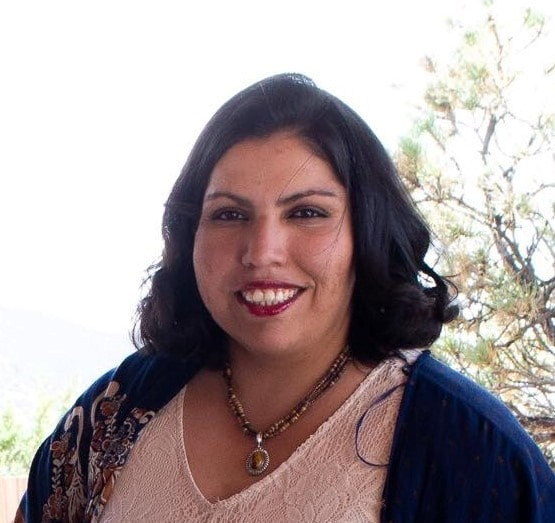
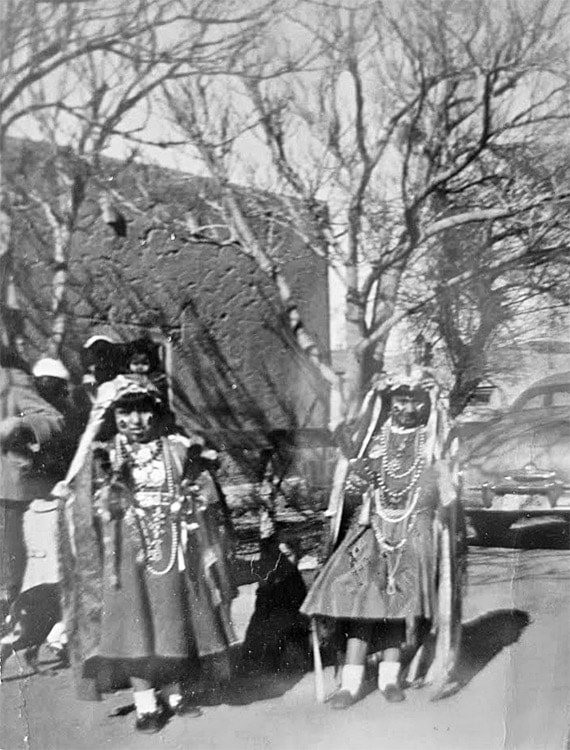
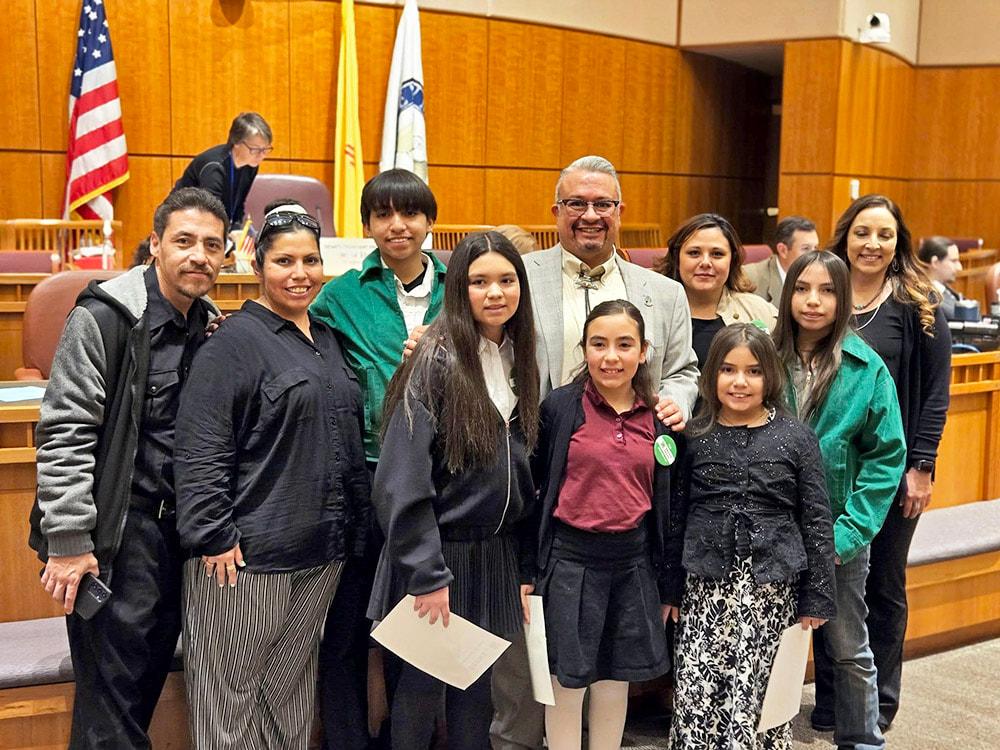
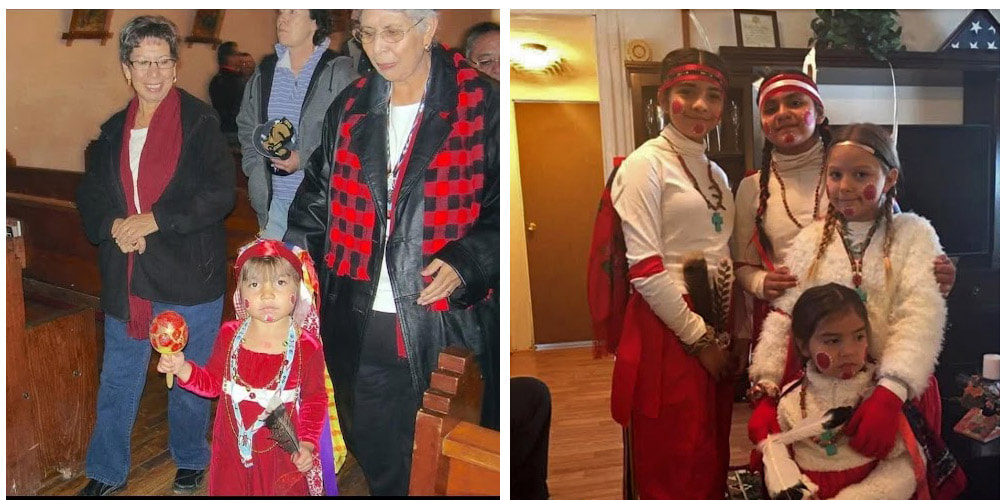

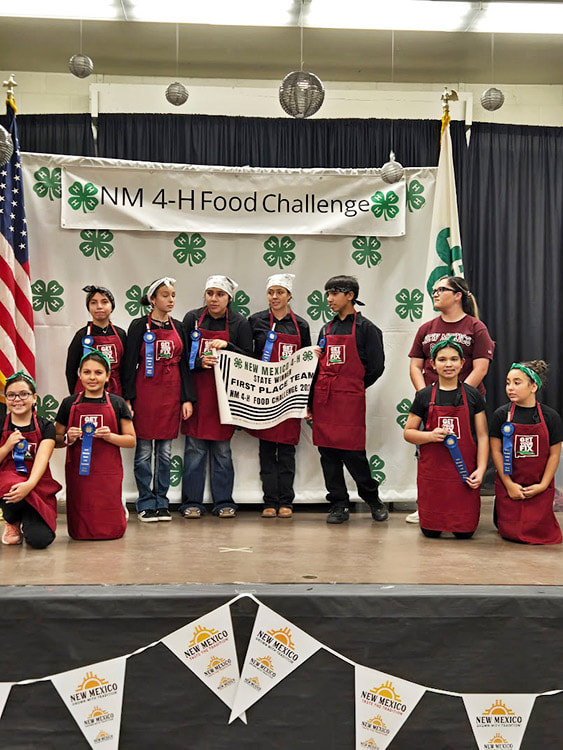
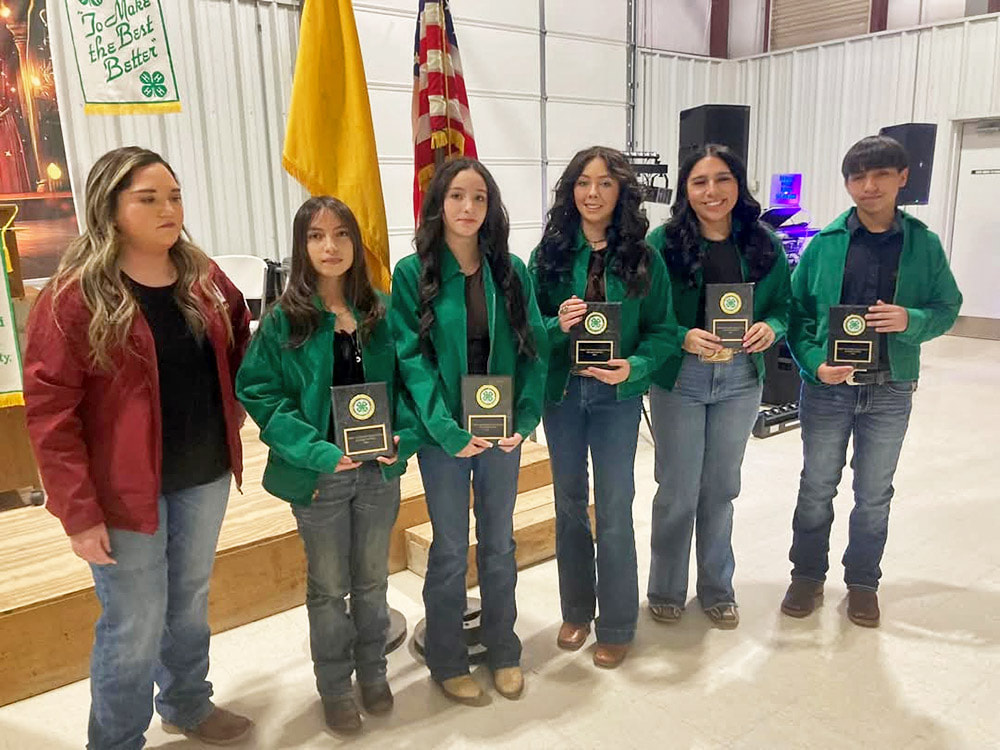
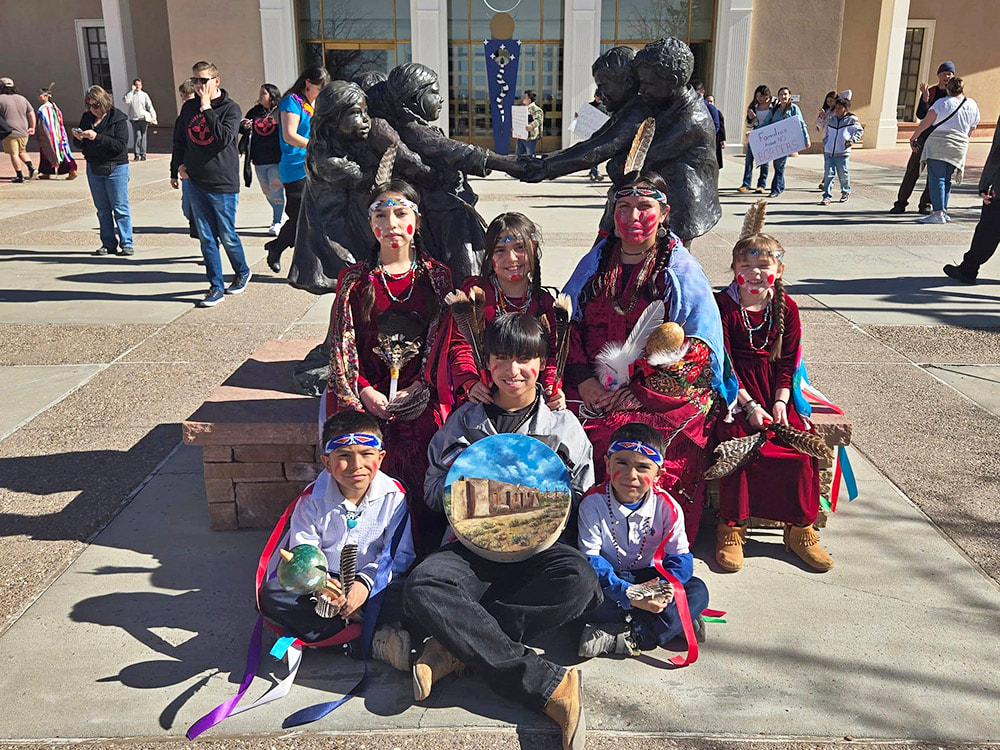
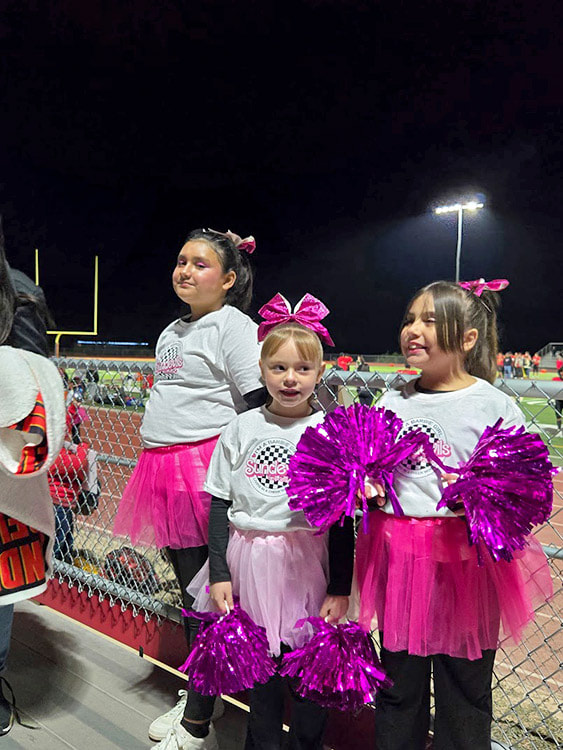
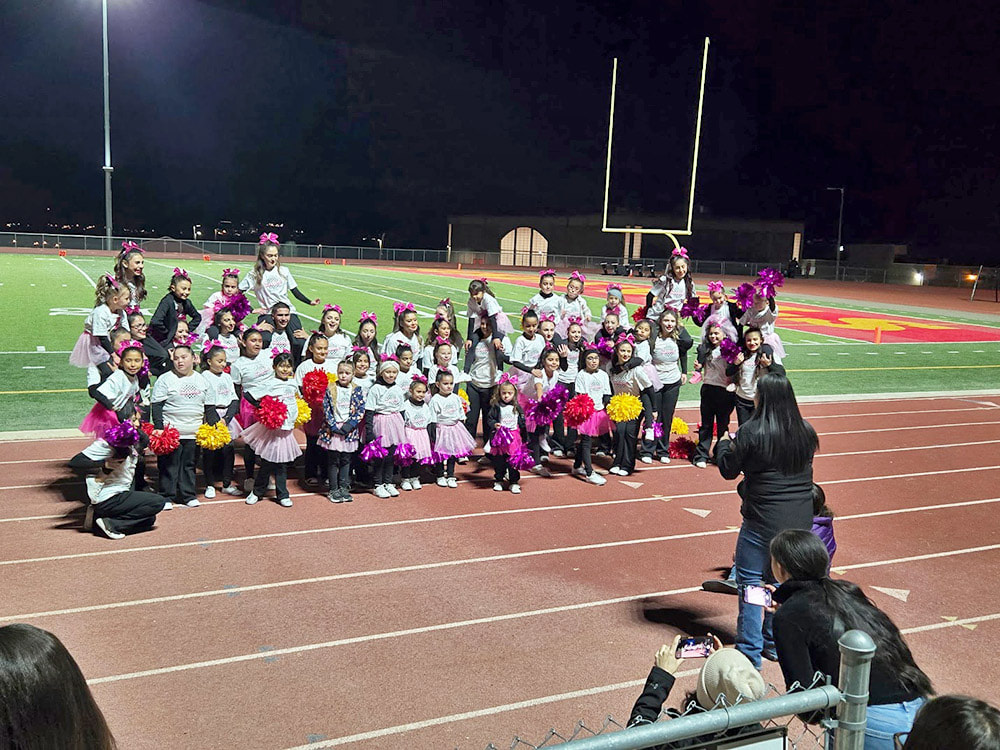

 RSS Feed
RSS Feed